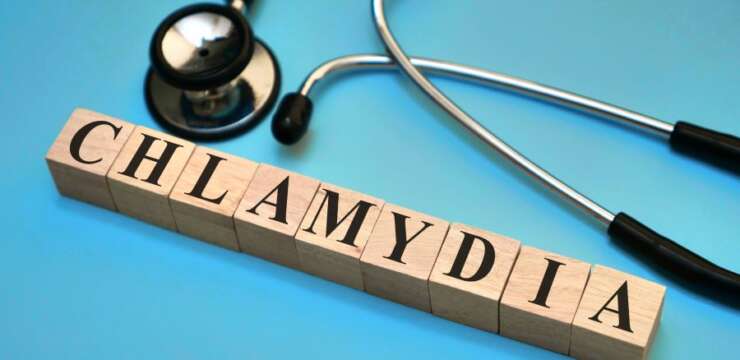Genital Warts, also called Condylomata acuminata or venereal warts, are growths that can emerge in the genital or anal regions. Now, what’s the connection?
These genital warts often result from a common sexually transmitted infection called HPV, or Human Papillomavirus.
These warts can appear individually or in clusters, ranging from tiny, less than 5 millimetres, to potentially growing into larger masses. They often blend in with your skin colour or might have a slightly darker hue.
Genital warts specifically target the delicate, moisture-rich tissues of your genital area. They can manifest as inconspicuous, flesh-coloured bumps or even resemble miniature cauliflower. Interestingly, some of these warts are so minuscule that they escape the naked eye.
Certain strains of HPV are responsible for these genital warts, while others can cause something dire like cancer. But there’s a silver lining – vaccines are available to shield you from specific HPV strains.
Are you intrigued to learn more about these concerning growths? Stick around.
Genital Warts can infect the following areas.
- Groin region.
- Anus.
- Rectum.
- Penis and scrotum.
- The vagina includes the inner walls, vulva, vaginal lips (labia minora and labia majora), and the cervix.
- Lips, mouth, tongue, or throat.
Are genital warts common?
People often discuss sexually transmitted infections like chlamydia or herpes. But another prevalent one that demands attention is genital warts, attributed to the human papillomavirus (HPV).
While genital warts usually do not often induce discomfort such as itching or pain, they could make you feel self-conscious or embarrassed and have the potential for transmission.
CDC-The Centers for Disease Control and Prevention identifies HPV infection as the most prevalent sexually transmitted infection (STI) in the United States.
However, it’s worth noting that only a minority of individuals exposed to HPV develop genital warts. Many people carry an HPV infection without any visible symptoms.
The CDC approximates that roughly 1 in 100 sexually active adults in the U.S. currently have genital warts. Staying informed about this commonplace STI is essential for safeguarding your sexual health.
Are genital warts lifelong?
The patient’s general health and immune status, along with their history of HPV vaccinations, the specific HPV strain involved, condom usage, and all play a role in determining recurrence rates.
How long do genital warts last?
In approximately 80% of cases, HPV naturally clears from the body within 18-24 months. Treatment, when needed, can alleviate visible symptoms within weeks or months.
It’s important to note that while removing warts from the skin can improve appearance, it may not necessarily reduce the risk of transmitting the virus.
However, in about 10-20% of cases, individuals may carry the HPV infection for life without displaying any visible symptoms.
Can you live a normal life after genital warts?
As you can envision, having a sexually transmitted infection or a genital wart might add a layer of complexity to your future romantic endeavours. Nevertheless, engaging in open and honest conversations with your potential partners is an opportunity.
When the time comes, sharing your experience with HPV can be a meaningful and intimate step in building trust and connection. Most people clear the HPV virus in 2 years, so remember it’s very common and usually goes away without treatment.
Diagnosis of Genital warts
Diagnosing external genital warts is typically straightforward for your healthcare provider, involving a visual examination and sometimes a biopsy for confirmation. However, detecting internal warts can be more challenging.
To diagnose genital warts, healthcare providers may employ the following tests:
1. Pelvic Exam: During a pelvic exam, Doctors look and examine for lumps in your genital area. Occasionally, you might need a Pap test / cervical test to check for cervical changes associated with genital warts.
Additionally, they might perform a colposcopy to examine and biopsy your vagina and cervix. If you are a man, a doctor will check for any new lumps or growth if you have found it.
2. Anal Exam: Your doctor will usually look for warts visible around your anus. For warts, an anoscope is used by your provider to inspect the inside of your anus for any signs of warts.
If you suspect you have genital warts, it’s essential to contact a healthcare provider. Remember that other conditions, including sexually transmitted infections and moles or skin tags, can mimic genital warts. An accurate diagnosis ensures you receive the appropriate treatment.
What is a differential diagnosis for genital warts?
The list of conditions that should be considered in the differential diagnosis of external genital warts (EGWs) comprises various skin conditions, skin tags, seborrheic keratoses, molluscum contagiosum, which are pearly penile papules.
Treatment of Genital warts
Genital warts can sometimes vanish independently, thanks to your immune system’s defence. However, they can grow larger, multiply, or become more uncomfortable.
Removing them relieves discomfort and reduces the risk of spreading the infection, as active outbreaks are more contagious. Remember, though, treatment doesn’t equal a cure.
Treatment methods vary, and you may need several sessions. During treatment, it’s wise to avoid sexual contact. Your healthcare provider may use techniques like:
- Electrocautery- This technique uses an electric current to burn away warts.
- Freezing (Cryotherapy)-Liquid nitrogen is applied to freeze and eliminate warts.
- Laser Treatment- A laser light targets tiny blood vessels within warts, cutting off their blood supply.
- Loop Electrosurgical Excision Procedure (LEEP)-In cases involving warts on the cervix, an electrically charged wire loop is used to remove them.
- Topical Medication- Your provider may prescribe a chemical solution or cream you apply to the warts weekly for several weeks. This chemical induces blister formation beneath the warts, disrupting their blood supply.
- Surgery-For more prominent or non-responsive warts, surgical removal may be necessary.
It’s crucial to understand that while treatment can remove genital warts, it doesn’t eliminate the underlying HPV infection.
Even if you no longer have an active outbreak and your warts are removed, you can still transmit HPV to others. There is no treatment to get rid of the virus, but in most cases, it will go on its own.
Can I treat genital warts myself?
It’s essential to seek treatment for genital warts from a medical professional. Attempting to treat them on your own is not recommended.
Conclusion
To prevent genital warts:
- Limit sexual partners.
- Get vaccinated against HPV.
- Consistent condom use provides some protection but is not foolproof.
The CDC recommends HPV vaccination for boys and girls, with the recommended starting age at 11 or 12, but it can begin as early as 9. The preferred timing is before sexual activity starts. Side effects are usually mild.
Recent CDC guidance advises a two-dose schedule for 11- and 12-year-olds, with a six-month interval. Teens aged 15 to 26 and adults aged 27 to 45 can still receive the vaccine. Catch-up vaccinations are recommended up to age 26.
Consult your healthcare provider if you’re aged 27 to 45 to assess your risk and discuss vaccination.
Here is the link to my video guide based on the above Blog Post-https://www.youtube.com/watch?v=Bh7XUq0HORE
References
https://www.medicalnewstoday.com/articles/155236#what-are-they
https://www.mayoclinic.org/diseases-conditions/genital-warts/symptoms-causes/syc-20355234.
https://my.clevelandclinic.org/health/diseases/4209-genital-warts
https://www.everydayhealth.com/sexual-health/hpv/hpv-warts-misunderstood-std/
https://www.medicalnewstoday.com/articles/155236#prevalence.
https://www.ncbi.nlm.nih.gov/books/NBK441884/
https://www.medicalnewstoday.com/articles/155236#how-long-do-they-last.
https://www.verywellmind.com/hpv-coping-support-and-living-well-5207969.
https://academic.oup.com/cid/article/35/Supplement_2/S210/316436.
https://www.mayoclinic.org/diseases-conditions/genital-warts/symptoms-causes/syc-20355234.
Disclaimer: The Video Content on this channel is for educational purposes and not intended to be a substitute for professional medical advice, Diagnosis, or Treatment. Always get advice from your doctor if you are worried or have symptoms.



2 Comment(s)